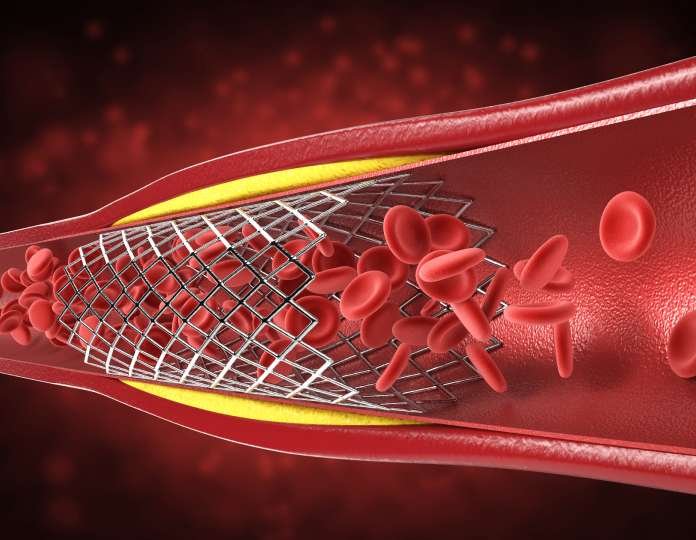Bollywood actor Amitabh Bachchan quickly dispelled false health rumors, putting an end to rumors that he was admitted to the spital. Earlier in the day, rumors of a possible angioplasty to treat a leg clot or blocked artery sent fans into a frenzy on social media. But Bachchan’s reply categorically refuted these rumors, ending the false information that had been going around.
Heart-related conditions, such as CAD do not exhibit any of (CAD), have been the primary cause of morbidity and death both domestically and internationally. CAD is commonly associated with risk factors such as diabetes mellitus, dyslipidemia, smoking cigarettes, hypertension, and a family history of the disease. A considerable portion of individuals with CAD do not exhibit any of the five risk factors, despite the fact that most of them do have at least one conventional risk factor. A sedentary lifestyle, psychological disorders, obesity, raised serum high-sensitivity C-reactive protein, and elevated coronary artery calcium score are additional risk factors. By identifying these risk factors, more thorough clinical risk strata could be created, allowing for improved patient care.
Also Read: Psychological Insights for Enhanced Employee Wellbeing in the Workplace
Clinicians frequently neglect the determinantal result towards CAD that is connected with the formation of depression, anxiety, and persistent psychosocial stress. Heart rate variability, endothelial inflammation, and reduced myocardial perfusion associated with psychological stressors like anxiety and depression are thought to be the main factors influencing the disease’s course. There is little information available about the anxiety and sadness experienced by patients having percutaneous coronary intervention (PCI) and coronary angiography (CAT scans).

What Is Angioplasty?
Angioplasty, commonly known as balloon angioplasty, is a medical technique that facilitates blood flow through arteries by opening them up. When plaque narrows or totally blocks the interior of the artery, doctors employ this minimally invasive procedure in artery-tight locations.
Who Needs To Have Angioplasty?
Those who have had a heart attack or coronary artery disease may require coronary angioplasty. Angioplasty can also help other body parts with narrowed or clogged arteries, such as your neck, arms, legs, kidneys, and pelvis. An angioplasty can increase blood flow through an artery that is too narrow or clogged with plaque. This suggests that the organ that the artery reaches will have more blood supply after angioplasty.
What does Angioplasty treat?
Atherosclerosis, a buildup of fat and cholesterol-containing plaque in your arteries throughout your body, is treated with an angioplasty. Coronary artery disease. If you have a small or clogged coronary artery that is preventing your heart from obtaining the oxygen it needs, causing chest pain and/or a heart attack, you may benefit from a procedure called coronary angioplasty, also known as percutaneous coronary intervention.
- Peripheral Artery Disease: Atherosclerosis in the main arteries in your arms, legs, and pelvis is treated with angioplasty.
- Carotid artery dysfunction: If you have clogged arteries in your neck, angioplasty may assist. If your brain isn’t getting enough oxygen. It can cause a stroke if you don’t seek treatment.
- Chronic Kidney Disease: The amount of oxygen that reaches your kidneys is impacted when plaque builds up in their arteries.
Psychological Effect of Angioplasty
Depression:
Depression is a serious disorder that affects both your physical and mental health; it’s not merely a bad mood. Everybody gets depressed or moody every now and again, but some people suffer from these emotions severely, for extended periods (weeks or months), and often for no apparent reason at all.
Also Read: Disposable Relationships: A Psychological Perspective
A majority of patients, experience feelings of hopelessness, sadness, or depression following angioplasty. They feel depressed due to the stress of dealing with cardiac conditions, lifestyle changes, or concerns about future health outcomes. Due to their cardiac conditions, they are limited to a small range of activities.

Anxiety:
When someone feels under pressure, they often have anxious sensations, which normally go away when the stressful event is over or the stressor is eliminated. Anxiety and fear are associated with the period before or after the Angioplasty procedure. Fear is from the Angioplasty procedure itself as its failure can leave an impact on heart conditions which can contribute to heightened anxiety levels.
Post-Traumatic Stress Disorder (PTSD):
In some cases, particularly if the procedure or the patient finds it hard or recovery is challenging or if complications occur, patients may develop symptoms of PTSD. This can include intrusive thoughts, flashbacks, Hypervigilance and avoidance behaviors related to the medical setting or reminders of the procedure. Some people get post-traumatic stress disorder (PTSD) when they go through or see anything that puts their own or others’ lives in danger. It Is not rare for people to encounter additional mental health issues along with long-term PTSD. Indeed, up to 80% of individuals with chronic PTSD go on to experience other issues, most frequently anxiety and sadness.
Also Read: Psychological Impact of Human Rights Violations
Body Image Concerns:
In an era of standardized beauty, people may often feel low if they’re not standing on the scale of beauty. The procedure of Angioplasty may leave behind scars or marks due to the surgery, which can affect a patient’s body image and so self-esteem especially if the scars are visible. It’s critical to have a positive body image since it affects how we feel about ourselves. It affects how we behave in relationships and how confident we are. A person’s appearance loses importance when they start using other criteria to gauge their sense of value and acceptance.
Adjustment to Life Changes:
After the procedure of Angioplasty is done, the patient is required to make certain changes in their lifestyle such as adopting a heart, healthy diet, quitting smoking, increasing physical activity, and managing stress. Adjustment to a new lifestyle can be challenging and may lead to feelings of frustration or loss of control.

Social and Relationship Impact:
Social and relationships can be impacted by Chronic health conditions like coronary artery disease and undergoing procedures like Angioplasty. Patients may feel isolated, have difficulty engaging in previous activities, or experience changes in roles within their families or communities.
After the Angioplasty
A successful angioplasty increases blood flow in your arteries, but it doesn’t treat atherosclerosis, the underlying disease that produces the artery-clogging accumulation. Your doctor might advise you to undertake the following to lower your chance of developing new artery blockage:
- Maintain a diet low in saturated fat and heart-healthy.
- Give up smoking, if you’ve not already.
- Engage in regular exercise
- Lessen tension
- Additionally, you can be given medicine to assist manage your cholesterol or blood pressure.
It’s critical to comprehend the facts about heart attacks and their causes in India, where heart disease has alarmingly increased in prevalence. To reduce the risks connected with heart disease, it is crucial to emphasize the significance of leading a healthy lifestyle and receiving timely medical attention.
Also Read: Hangxiety: Know the Psychological Reasons Behind Hangover
Patients with heart conditions can find hope with angioplasty, a life-saving surgery that improves heart function and blood flow. Patients should be knowledgeable about the various stent options when thinking about angioplasty, so they can make well-informed decisions about their care. Recall that prevention is always preferable to treatment. The risk of heart disease can be considerably decreased by leading a heart-healthy lifestyle that includes regular exercise, a balanced diet, stress management, abstaining from tobacco use, and moderate alcohol use. Making heart health a priority now will guarantee that everyone is healthier tomorrow.
References+
- Professional, C. C. M. (n.d.). Angioplasty. Cleveland Clinic. https://my.clevelandclinic.org/health/treatments/22060-angioplasty
- Department of Health & Human Services. (n.d.). Post-traumatic stress disorder (PTSD). Better Health Channel. https://www.betterhealth.vic.gov.au/health/conditionsandtreatments/post-traumatic-stress-disorder-ptsd
- https://www.ncbi.nlm.nih.gov/pmc/articles/PMC3844159/













Leave feedback about this